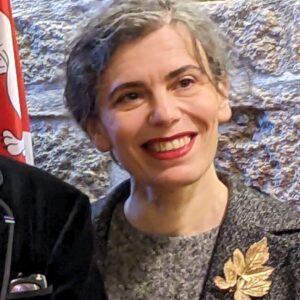contact@french-immersion-teacher-home.com
Saint-Malo is a city with a very rich history. The old town, also known as “intramuros” or “Cité Corsaire,” was for a long time an island. Today it is connected to the mainland by a long breakwater lined with historic villas along a vast beach called the Sillon, and by two opening bridges spanning the busy port of Saint-Malo. It is also the birthplace of navigator Jacques Cartier, “discoverer” of Canada, and of the writer Chateaubriand, whose tomb lies on a small island accessible at low tide from the Cité Corsaire.
The Cité Corsaire is enclosed by ancient granite ramparts, from which one can see the entire coastline. The light there is beautiful and ever-changing, the air is pure and the breeze refreshing. In the 17th century, the city became a major trading port with America. During the Allied landings at the end of World War II, Saint-Malo was bombed and largely destroyed, but it was rapidly rebuilt in accordance with its original style, with some Art Deco additions. My apartment is in an 18th-century shipowner’s townhouse; the building is a listed historical monument that may not be altered.
Within a few minutes’ walk from my home are beaches, a natural tidal swimming pool, bars, restaurants, numerous shops and a market. Paid parking is available all around the ramparts.

My name is Pascale and I have been teaching French for almost thirty years. I’m French, but I grew up in Cameroon and the Netherlands ; later, I lived in Rome, New York City and Los Angeles. I’m also a writer and a publisher. My husband is a writer and a musician. We own – and may lend – hundred of books. I love to exchange with people from various origins, I love to learn, and I’m interested into many topics. I welcome students of all ages for language immersions. My approach is based on kindness, conversations, culture and daily experiences.
I live in the historical city of Saint Malo, a former island, surrounded by huge granite battlements. Behind one of them, my appartment is part of a seventeenth-century mansion. My husband was a diplomat working all around the world ; he collects art, beautiful furniture, traditional carpets and stuffed animals ; many people think we live in a museum – but we’re confortable at home ! I enjoy cooking French and oriental dishes, walking on the shore or in town, organizing creative workshops. Immersion in my home is, more than anything esle, improving your French naturally by sharing conversations and daily experiences.
I’m lactose and gluten intolerant : allergic people are welcome !
I studied Maths and Sciences in High School, Maths, Literature, Philosophy, History and Social Sciences in preparatory class, Literature and History at the Paris Nanterre University… Then I became a French teacher, through a competitive exam, “agregation”. Years later, as I was living in the US, I get a Master of Information in Rutgers University.
The stays last between 5 and 10 days and always begin with a meeting to get acquainted and adjust the program to the learner’s needs. Each day, the learner engages in immersion activities: meal preparation, market visits, organizing the day, and discussions on various topics. Learning occurs naturally through constant interaction with the environment in a friendly setting.
Cultural or nature outings are offered according to preferences: visiting islands accessible at low tide (scheduled based on tide times), walks along the shore, through the streets of the old town or Saint-Servan, and discovering Saint-Malo’s beaches and the natural swimming pool at Bon Secours Beach, a charming seaside spot facing Saint-Malo. On free days, the learner can explore the region at their own pace. Additional activities not included in the basic program—such as a boat trip to Dinard—may be suggested. The objective is to provide a lively, human, and personalized immersion that promotes both linguistic progress and cultural discovery.


To immerse oneself in the French language is to enter a world where every word carries the weight of history, every conversation reveals a culture, and every day becomes a discovery of the soul. —Maya Angelou